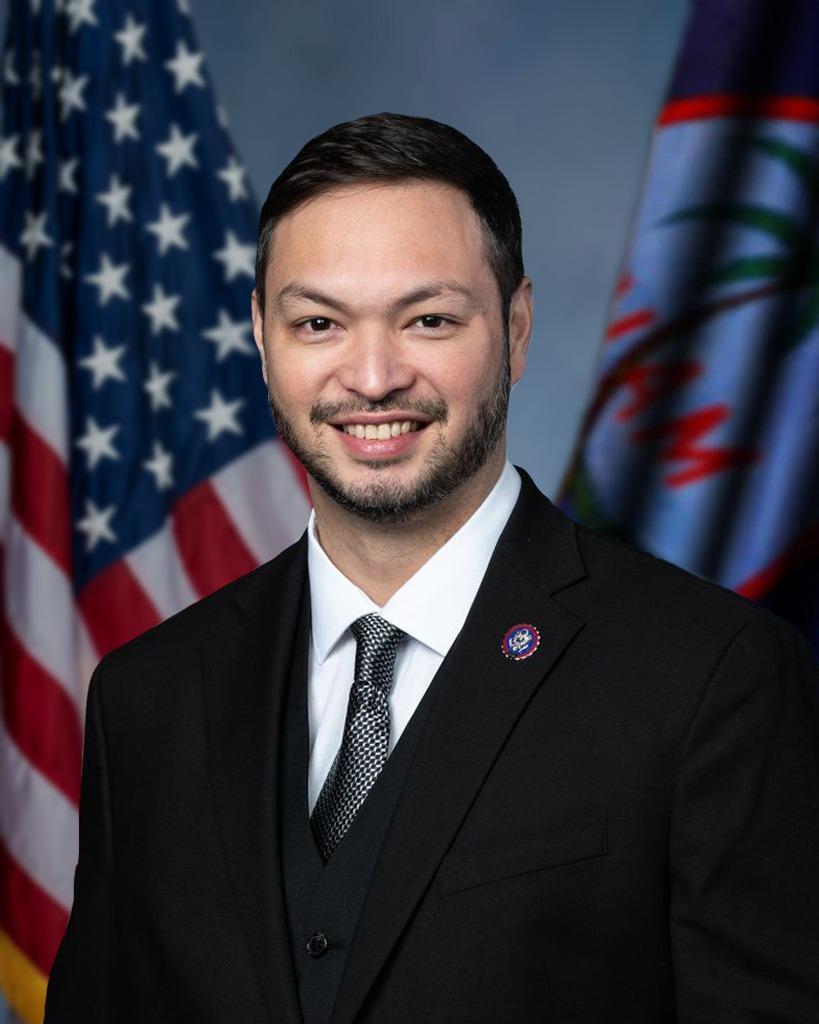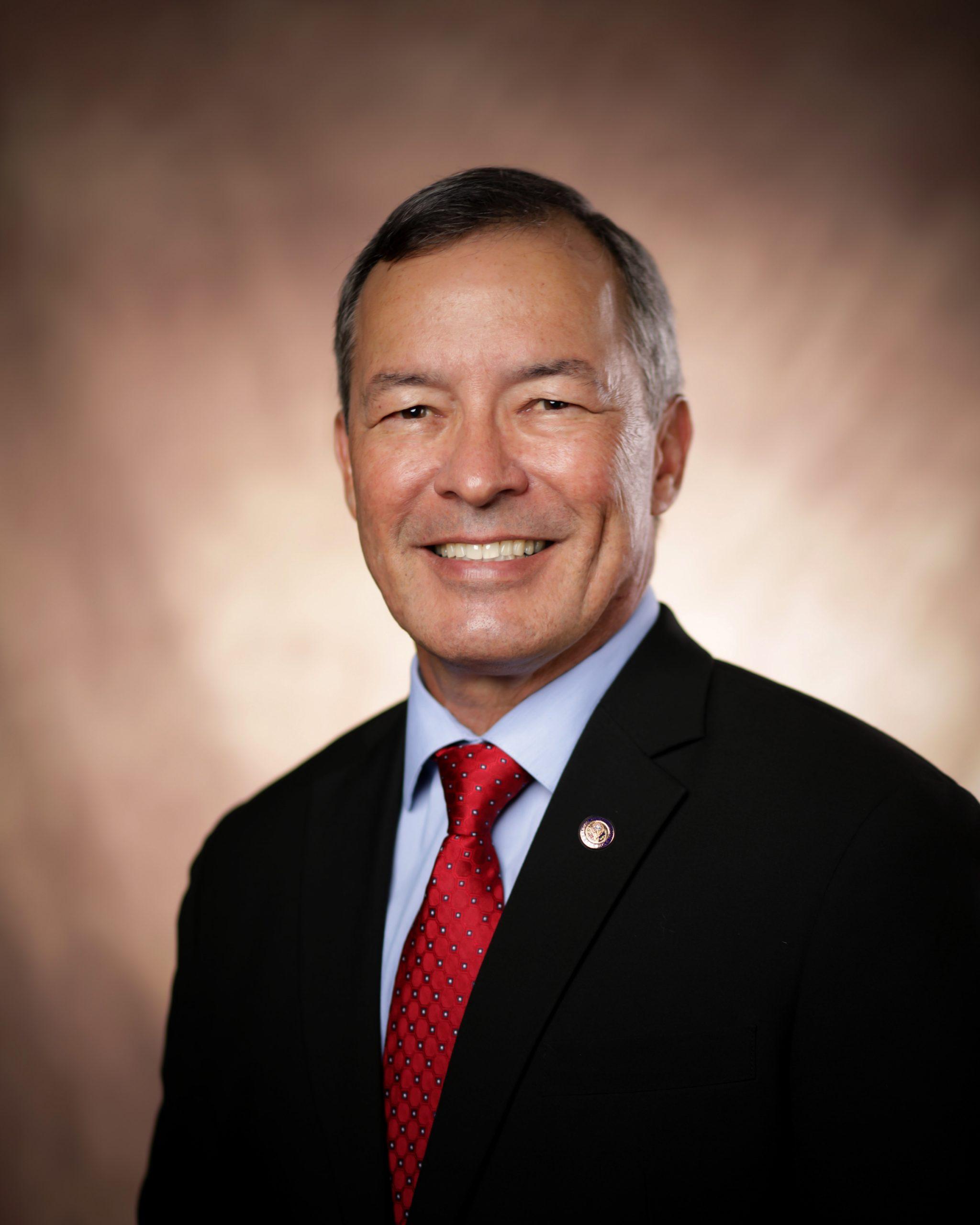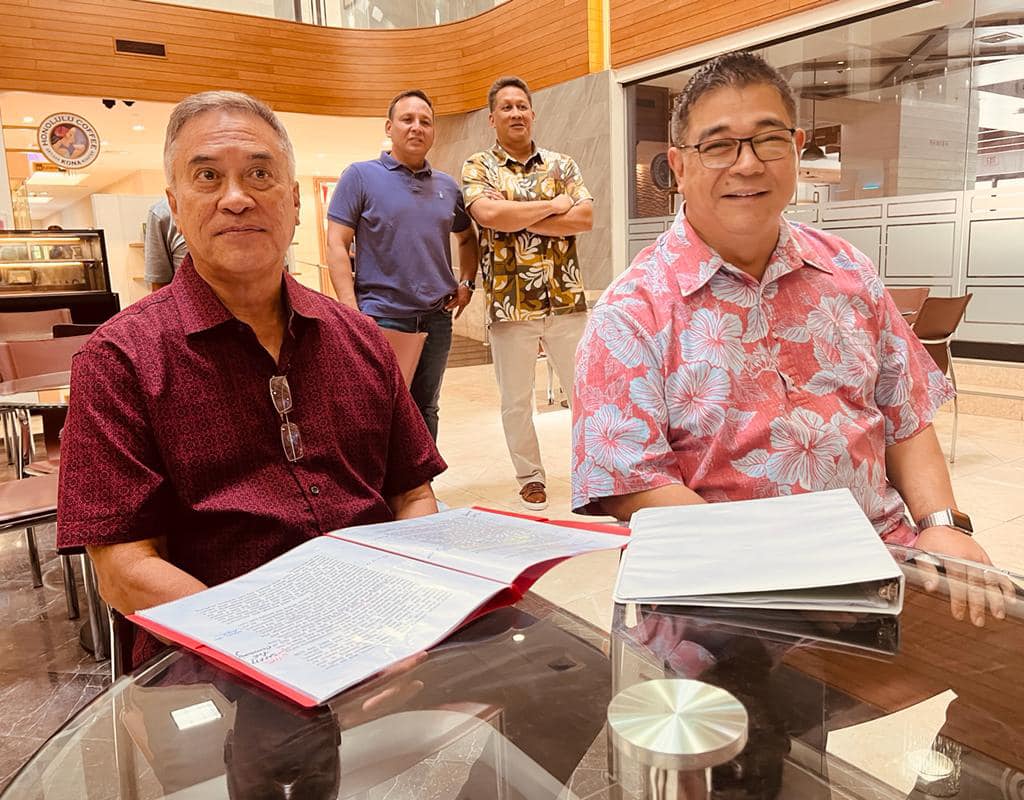Former Gov. Felix Camacho and his running mate, Sen. Tony Ada, want private sector employees who worked during the pandemic and did not qualify for unemployment aid to receive essential worker pay.
“The Governor of Guam should execute an essential pay program at the soonest for private sector workers,” a statement from the Camacho Ada gubernatorial campaign states. “Island residents are well aware that funds have since been appropriated by the U.S. Congress for this important purpose. Governor Felix Camacho and Senator Tony Ada stand with other island leaders to push for support for all essential workers, in both the public and private sector, as Guam continues to respond to the ongoing public health emergency.”
The republican team’s call for standing up the program now makes the push bipartisan. Gov. Lou Leon Guerrero’s challenger for the democratic nomination for governor, Congressman Michael San Nicolas, also has called for the program.
 “Let’s get that $300 million in federal relief out now,” Mr. San Nicolas said in his congressional address last week, referencing federal American Rescue Plan Act discretionary funding within the governor’s exclusive control. “Let’s finally get relief out to our essential workers who are the reason our public and private sector remained operating!”
“Let’s get that $300 million in federal relief out now,” Mr. San Nicolas said in his congressional address last week, referencing federal American Rescue Plan Act discretionary funding within the governor’s exclusive control. “Let’s finally get relief out to our essential workers who are the reason our public and private sector remained operating!”
“If we lift up our brothers and sisters who are struggling and the middle class,” the Camacho Ada platform states, “future generations will inherit and legacy of growth and prosperity we can all be proud of.”
The governor’s office has yet to respond to Kandit’s question to the governor whether she agrees with such a program and will issue essential worker pay.
Mr. San Nicolas said if elected and the federal funds remain, he will create the program and pay essential workers.
“Our essential workers kept us alive when things were shutting down all around us,” he said, continuing, “we must value them in our financial support if we are to rely on them in the future when times are hard again.”
The federal government – compliments of the American taxpayer – kept thousands of families from going hungry and losing their homes during the pandemic. Billions in federal funds ranging from an array of coronavirus relief grants to military spending kept the private sector afloat. Thousands received unemployment assistance benefits, when their employers were unable to open shop. Even the government of Guam was able to pay its employees to stay home during the lockdowns. All thanks to federal funds.
But then there were the other workers – the ones in the private sector, who had to go to work even when infection rates were soaring – who were left in the cold.
Grocery workers, gas station attendants, bank employees, hotel and restaurant workers, truckers and distributors, construction workers, telecom attendants, janitors, and many others who went to work at reduced hours and exposed themselves to the risk of infection from each other and their customers belong to a category of employees throughout the nation that Congress has dubbed ‘essential workers.’ And because they were called to work during the pandemic, they did not qualify for unemployment assistance and other programs.
When Congress appropriated to Guam more than a billion dollars in funding for the governor to use at her discretion, among the key recommendations for usage of those funds was to pay ‘essential worker pay.’ In a nutshell, it would have been a stipend per hour of work during the period other workers were receiving Pandemic Unemployment Assistance, or PUA.
For example, let’s say Gov. Leon Guerrero decided to use a portion of the remaining $320 million in American Rescue Plan Act money still sitting in the bank to grant to essential workers $2 per hour in essential worker pay. If, for example, a worker could show pay stubs totaling 1,000 hours of work during the PUA period, that person would receive $2,000 in essential worker pay. The amount is far below what PUA recipients and GovGuam workers received, but it would arguably help thousands of families who were left out of the federal largesse resulting from the pandemic. If 10,000 of these essential workers received this same benefit, the program would cost $20 million. There is 16 times that amount sitting in the bank.
Mr. San Nicolas has been advocating for the use of ARPA discretionary funds to pay essential worker pay since news of Congress’s approval of $661 million in discretionary funds came in March last year.
“We have heard the calls for equity from our essential workers, and we’re very pleased that the Senate enabled this provision for them to be eligible for additional pay,” the congressman stated at the time. “The local government must now take the steps necessary to make essential worker compensation happen, and we look forward to those who have been on the front-lines sustaining our economy, health, and safety finally receive the support they deserve.”
Camacho, Ada, San Nicolas, and his running mate – Sabrina Salas Matanane – are not alone among the island’s elected leadership to call on the governor to pay essential workers.
In April 2020, Sen. Jim Moylan protested outside the Guam Congress Building to call attention to essential workers left out of aid programs paid with federal funds and administered by the local government.
 “While public assistance may be available, not everyone qualifies, and as a lawmaking body, it is paramount that alternative options be identified,” he said at the time.
“While public assistance may be available, not everyone qualifies, and as a lawmaking body, it is paramount that alternative options be identified,” he said at the time.
Other states have implemented such a program.
The governor and legislature of Massachusetts implemented an essential worker pay program that has paid stipends to hundreds of thousands of low-income private sector workers.
Oregon Gov. Kate Brown will award to essential workers who were required to report to work in person during the pandemic one-time “COVID hazard payments” of up to $1,550 under new tentative labor agreements.
In Minnesota, Gov. Tim Walz is using federal funds for a frontline worker program that will provide essential worker pay to people in his state who worked in frontline industries between March 15, 2020 and June 30, 2021.
In Michigan, a ‘Hero Pay’ program will pay $1,000 to first responders, and $2 per hour for direct-care workers.







1 Comments
Alan San Nicolas
07/19/2022 at 7:08 AM
Kubre todu I taotao I islata. Hotnaleru hamyu para todu. Ayuka buliku (donkey) hao pot seno elifante (elephant) hao para hafa ham ni pupbliku.